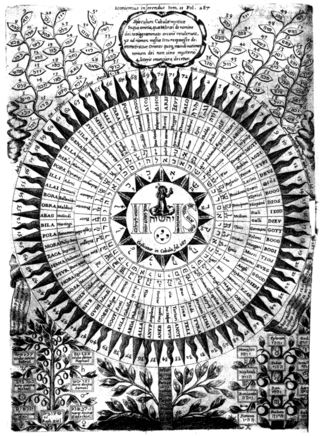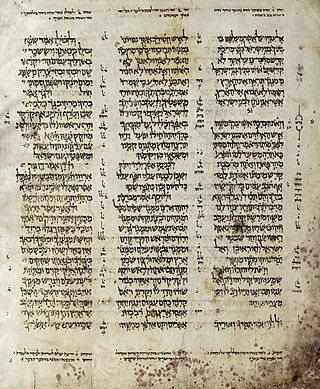
Judaism considers some names of God so holy that, once written, they should not be erased: יהוה, אֲדֹנָי, אֵל, אֱלֹהִים, שַׁדַּי, and צְבָאֽוֹת ; some also include I Am that I Am. Early authorities considered other Hebrew names mere epithets or descriptions of God, and wrote that they and names in other languages may be written and erased freely. Some moderns advise special care even in these cases, and many Orthodox Jews have adopted the chumras of writing "G-d" instead of "God" in English or saying Ṭēt-Vav instead of Yōd-Hē for the number fifteen or Ṭēt-Zayin instead of Yōd-Vav for the Hebrew number sixteen.
Jah or Yah is a short form of the tetragrammaton יהוה (YHWH), the personal name of God: Yahweh, which the ancient Israelites used. The conventional Christian English pronunciation of Jah is, even though the letter J here transliterates the palatal approximant. The spelling Yah is designed to make the pronunciation explicit in an English-language context, especially for Christians who may not use Hebrew regularly during prayer and study.

Elohim, the plural of אֱלוֹהַּ, is a Hebrew word meaning "gods" or "godhood". Although the word is grammatically plural, in the Hebrew Bible it most often takes singular verbal or pronominal agreement and refers to a single deity, particularly the God of Israel. In other verses it refers to the singular gods of other nations or to deities in the plural.

There are various names of God, many of which enumerate the various qualities of a Supreme Being. The English word god is used by multiple religions as a noun to refer to different deities, or specifically to the Supreme Being, as denoted in English by the capitalized and uncapitalized terms God and god. Ancient cognate equivalents for the biblical Hebrew Elohim, one of the most common names of God in the Bible, include proto-Semitic El, biblical Aramaic Elah, and Arabic ilah. The personal or proper name for God in many of these languages may either be distinguished from such attributes, or homonymic. For example, in Judaism the tetragrammaton is sometimes related to the ancient Hebrew ehyeh. It is connected to the passage in Exodus 3:14 in which God gives his name as אֶהְיֶה אֲשֶׁר אֶהְיֶה, where the verb, translated most basically as "I am that I am" or "I shall be what I shall be", "I shall be what I am" In the Hebrew Bible, YHWH, the personal name of God, is revealed directly to Moses. Correlation between various theories and interpretation of the name of "the one God", used to signify a monotheistic or ultimate Supreme Being from which all other divine attributes derive, has been a subject of ecumenical discourse between Eastern and Western scholars for over two centuries. In Christian theology the word is considered a personal and a proper name of God. On the other hand, the names of God in a different tradition are sometimes referred to by symbols. The question whether divine names used by different religions are equivalent has been raised and analyzed.

Hallelujah is an interjection from the Hebrew language, used as an expression of gratitude to God. The term is used 24 times in the Hebrew Bible, twice in deuterocanonical books, and four times in the Christian Book of Revelation.
A theophoric name embeds the word equivalent of 'god' or God's name in a person's name, reflecting something about the character of the person so named in relation to that deity. For example, names embedding Apollo, such as Apollonios or Apollodorus, existed in Greek antiquity.

The Angel of the Lord is an entity appearing repeatedly in the Hebrew Bible on behalf of the God of Israel.

Qere and Ketiv refers to a system for marking differences between what is written in the consonantal text of the Hebrew Bible, as preserved by scribal tradition, and what is read. In such situations, the qere is the technical orthographic device used to indicate the pronunciation of the words in the Masoretic text of the Hebrew language scriptures (Tanakh), while the ketiv indicates their written form, as inherited from tradition.

Jehovah is a Latinization of the Hebrew יְהֹוָהYəhōwā, one vocalization of the Tetragrammaton יהוה (YHWH), the proper name of the God of Israel in the Hebrew Bible/Old Testament. The Tetragrammaton יהוה is considered one of the seven names of God in Judaism and a form of God's name in Christianity.
In contrast to the variety of absolute or personal names of God in the Old Testament, the New Testament uses only two, according to the International Standard Bible Encyclopaedia. From the 20th century onwards, "a number of scholars find various evidence for the name [YHWH or related form] in the New Testament.

In the Book of Genesis, Jehovah-jireh was the location of the binding of Isaac, where Yahweh told Abraham to offer his son Isaac as a burnt offering. Abraham named the place after God provided a ram to sacrifice in place of Isaac. This name, hence, carries the meaning, "The Lord will provide".

The Tetragrammaton, or the Tetragram, is the four-letter Hebrew theonym יהוה, the name of God in the Hebrew Bible. The four letters, written and read from right to left, are yodh, he, waw, and he. The name may be derived from a verb that means "to be", "to exist", "to cause to become", or "to come to pass". While there is no consensus about the structure and etymology of the name, the form Yahweh is now accepted almost universally, though the vocalization Jehovah continues to have wide usage.
Gender in Bible translation concerns various issues, such as the gender of God and generic antecedents in reference to people. Bruce Metzger states that the English language is so biased towards the male gender that it restricts and obscures the meaning of the original language, which was more gender-inclusive than a literal translation would convey. Wayne Grudem disagrees, believing that a translation should try to match the words of the original language rather than introduce the translator's opinion as to whether the original words meant to include both sexes or not, and that trying to be gender-neutral results in vague and contorted writing style. Michael Marlowe argues from a third standpoint, that the cultures in the Bible were patriarchal. The topic has theological and political undercurrents. Paul Mankowski says that inclusive-language translators are bowing to feminist political taboos rather than trying to translate accurately, while Marmy Clason says that their opponents are motivated by hostility to feminism rather than fidelity to the original meaning.
Shituf is a term used in Jewish sources for the worship of God in a manner which Judaism does not deem to be purely monotheistic. The term connotes a theology that is not outright polytheistic, but also should not be seen as purely monotheistic. The term is primarily used in reference to the Christian Trinity by Jewish legal authorities who wish to distinguish Christianity from full-blown polytheism. Though a Jew would be forbidden from maintaining a shituf theology, non-Jews would, in some form, be permitted such a theology without being regarded as idolaters by Jews. That said, whether Christianity is shituf or formal polytheism remains a debate in Jewish philosophy.

The Sacred Scriptures Bethel Edition (SSBE) is a Sacred Name Bible which uses the names Yahweh and Yahshua in both the Old and New Testaments. It was produced by Jacob O. Meyer, based on the American Standard Version of 1901 and it contains over 977 pages. The Assemblies of Yahweh printed 5,500 copies of the first edition in 1981. It is also used by some members of the Sacred Name Movement.

Sacred Name Bibles are Bible translations that consistently use Hebraic forms of the God of Israel's personal name, instead of its English language translation, in both the Old and New Testaments. Some Bible versions, such as the Jerusalem Bible, employ the name Yahweh, a transliteration of the Hebrew tetragrammaton (YHWH), in the English text of the Old Testament, where traditional English versions have LORD.

"Thou shalt not take the name of the LORD thy God in vain" is the second or third of God's Ten Commandments to man in Judaism and Christianity.

The Bible usually uses the name of God in the singular, generally using the terms in a very general sense rather than referring to any special designation of God. However, general references to the name of God may branch to other special forms which express his multifaceted attributes. The Old Testament/Hebrew Bible reveals YHWH as the personal name of God, along with certain titles including El Elyon and El Shaddai. Jah or Yah is an abbreviation of Jahweh/Yahweh, and often sees usage by Christians in the interjection "Hallelujah", meaning "Praise Yah", which is used to give God glory. In the New Testament the terms Theos, Kyrios and Patēr are additionally used to reference God.
Old Testament theology is the branch of Biblical theology that seeks theological insight within the Old Testament or Hebrew Bible. It explores past and present theological concepts as they pertain to God and God's relationship with creation. While the field started out as a Christian endeavor written mostly by men and aimed to provide an objective knowledge of early revelation, in the twentieth century it became informed by other voices and views, including those of feminist and Jewish scholars, which provided new insights and showed ways that the early work was bound by the perspectives of their authors.
Kyrios or kurios is a Greek word that is usually translated as "lord" or "master". It is used in the Septuagint translation of the Hebrew scriptures about 7000 times, in particular translating the name YHWH, and it appears in the Koine Greek New Testament about 740 times, usually referring to Jesus.












